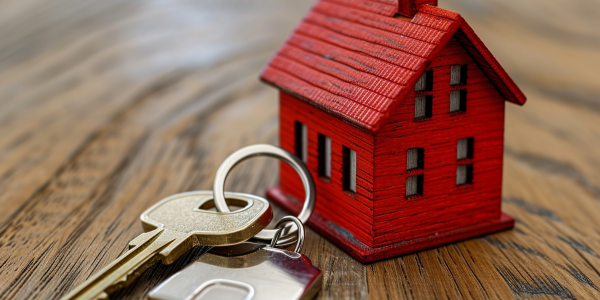Key Insights on CAM and NNN Charges to Avoid Surprises
Key Considerations for NNN Leases
When entering a lease agreement, it’s crucial to know what to review to prevent unexpected costs later on. Understanding your lease terms, especially regarding Common Area Maintenance (CAM) and Triple Net (NNN) charges, can save you from financial surprises down the line. Not all leases are the same, and knowing the specific terms can make a significant difference in your overall costs.
As you navigate your lease, pay attention to the essential components that outline your responsibilities. This knowledge will empower you to budget effectively and avoid disputes with property owners.
Reviewing these details ensures you aren’t caught off guard by rising fees that can eat into your profits.
Awareness and strategic planning are vital when dealing with lease terms. A proactive approach to understanding what your lease entails will ultimately make your leasing experience smoother and more predictable.
Key Takeaways
- You should know the specific CAM and NNN charges in your lease.
- Understanding your lease helps in budgeting for future expenses.
- Proactive lease management can prevent conflicts with property owners.
Understanding Lease Types and CAM Basics
When entering a lease agreement, knowing the differences between various lease types and understanding CAM charges is crucial. This knowledge can help you avoid unexpected costs and prevent disputes with your landlord.
Distinction Between NNN and Other Lease Agreements
A Triple Net Lease (NNN) places the responsibility for property expenses on the tenant.
This includes common area maintenance (CAM), property taxes, and insurance. In contrast, a Gross Lease includes these costs in a single rent payment, making it simpler for tenants.
Net Leases can vary. In a Net Lease, you might cover some costs, but not all. Understanding these distinctions allows you to know what expenses you may be responsible for, helping you budget effectively and avoid surprises.
What CAM Charges Encompass
Common Area Maintenance (CAM) charges cover costs related to shared spaces in a commercial property. This typically includes landscaping, parking lot maintenance, and cleaning services for common areas.
These charges can vary significantly, depending on the property and its amenities. It is important to review the lease details to understand what is included in CAM fees. You may also want to negotiate these charges with your landlord to ensure that you are responsible only for necessary costs.
Key Components of CAM and NNN Charges
It is important to understand the specifics of Common Area Maintenance (CAM) and Triple Net (NNN) charges to avoid unexpected costs in your lease. Key areas to focus on include operating expenses, insurance, and maintenance costs.
Detailed Breakdown of Operating Expenses
Operating expenses are crucial in NNN leases. They usually cover the costs of managing and maintaining common areas. Key elements include:
- Base Rent: This is the fixed amount you pay for leasing the space.
- Operating Costs: These costs can fluctuate yearly and include utilities, janitorial services, and management fees.
It's essential to review how these operating expenses are defined in your lease. Look for details on whether there are caps on increases, which can help you anticipate future costs. Understand what specific items are included in these expenses to avoid surprises.
Insurance and Property Taxes Under NNN Leases
In NNN leases, you are responsible for insurance and property taxes. Key components include:
- Building Insurance: This covers damages to the property, which is critical for your investment security.
- Property Taxes: You will pay a proportional share of local property taxes based on the space you occupy.
Be sure to examine how these charges are calculated. Ask for a breakdown of the current insurance coverage and tax rates. This knowledge helps you budget accurately and understand your financial obligations.
Maintenance Costs and Capital Improvements
Maintenance costs under your lease can cover various services essential for property upkeep. Important aspects are:
- Landscaping: Regular upkeep of exterior spaces.
- Parking Lot Maintenance: This includes pothole repairs and snow removal.
Capital improvements may also fall under maintenance costs. These improvements can increase property value but can impact your expenses. Ensure your lease specifies who pays for these costs and how often maintenance evaluations will occur. Clear terms can prevent disputes about extra charges later.
Strategic Financial Planning for CAM and NNN Expenses
Managing CAM and NNN expenses requires careful planning to avoid unwanted surprises. Strategic financial planning ensures you budget accordingly and understand your financial obligations in your lease.
Budgeting for CAM and NNN Costs
Begin by creating a detailed budget that includes projected CAM and NNN costs. These expenses can vary based on operational needs, so it's essential to account for changes.
Regularly review past expenses and identify trends to help predict future costs.
Understanding these expenses allows you to plan for fluctuations, ensuring you can handle potential cost increases without financial strain.
Understanding and Negotiating Your Pro-Rata Share
Your lease typically outlines how your pro-rata share is calculated. This share reflects your portion of the total expenses based on your rental space compared to the entire property. Knowing how this is determined is vital for accurate budgeting.
When negotiating your lease, clarify how expenses are allocated. Ask questions about:
- The square footage used for calculation
- Types of expenses included
- Any caps on increases
This knowledge informs your financial responsibilities and reduces the risk of unexpected costs down the line. Better negotiations lead to clearer expectations and less financial uncertainty.
Preparing for CAM Reconciliation and Audits
CAM reconciliation occurs at the end of each financial year. It's important to know how this process works. Your landlord should provide an itemized statement of all expenses incurred, showing your share.
Stay proactive by keeping records of all correspondence regarding CAM expenses.
During audits, you can reference these documents to ensure accuracy.
If discrepancies arise, you should address them promptly. Regular audits can help you catch mistakes and recover overpaid amounts, protecting your financial interests.
Familiarize yourself with these processes to ensure financial transparency throughout your lease term. It allows you to maintain a strong financial position while managing expenses effectively.
Effective Lease Management and Avoiding Potential Disputes
Effective lease management is key to maintaining a smooth landlord-tenant relationship and minimizing disputes. By focusing on clear communication, strict compliance with lease terms, and utilizing technology, you can mitigate potential issues related to CAM and NNN charges.
Navigating Landlord-Tenant Relationships
Strong relationships between landlords and tenants are essential for successful lease management. Open communication helps both parties discuss concerns promptly.
Schedule regular meetings or check-ins to address issues such as maintenance or financial responsibilities.
In your lease agreement, specify the obligations of each party. Clearly outline expectations regarding common area maintenance (CAM) charges, repairs, and any other shared costs. This clarity can prevent misunderstandings that lead to disputes.
Document all verbal agreements in writing to ensure a clear record.
Compliance and Lease Terms Enforcement
Compliance with the lease terms is critical. Both you and your landlord must understand the lease agreement and act within its parameters.
Review your lease thoroughly to confirm it aligns with your financial responsibilities and expectations.
If issues arise, revisit the lease terms to resolve disputes effectively. For example, if a landlord charges unexpected fees, refer back to the lease to assess their validity.
Proactively address potential violations or disagreements to avoid escalation. Being informed about your rights and obligations can protect you from misunderstandings.
Utilizing Property Management Software
Leveraging property management software can streamline lease management. Such tools help track key dates, payments, and obligations. They can also aid in documenting communications with your landlord, fostering transparency.
By utilizing software for reminders about lease timelines, you can avoid missing crucial deadlines.
Additionally, many property management platforms offer features that help manage expenses related to CAM and NNN charges. This can provide you with a clearer view of your financial responsibilities, helping avoid surprises later.
Investing in this technology can significantly enhance your lease management experience.
Frequently Asked Questions
Understanding the details of your lease can help you avoid unexpected costs. Here are some common questions tenants have regarding CAM and NNN leases.
What are the typical inclusions in Common Area Maintenance (CAM) charges?
CAM charges usually cover expenses related to shared areas of a property. This can include costs like landscaping, maintenance, utilities, and property management fees. Make sure to review your lease to see specific inclusions.
How can tenants effectively negotiate terms in a Triple Net (NNN) lease?
To negotiate effectively, come prepared with data on comparable leases in the area. Focus on areas such as lease length, escalation clauses, and how expenses are calculated. Clearly communicate your needs to the landlord.
What are the usual tax implications for tenants under a Triple Net (NNN) lease agreement?
Under a NNN lease, you are typically responsible for property taxes. This can vary by location, so it’s wise to research local tax rates. Ensure you understand how tax increases could affect your overall expenses.
Which items should tenants ensure are excluded from CAM charges to prevent overpaying?
Make sure to exclude any costs not directly related to property maintenance. Items like capital improvements or marketing expenses are often negotiable. Review your lease carefully to identify these exclusions.
What key components should be carefully reviewed in any lease agreement to avoid future disputes?
Key components include rent escalation clauses, CAM charge calculations, and maintenance responsibilities. Ensure everything is clearly defined to avoid misunderstandings later. Pay attention to how dispute resolution is handled in the lease.
How can a single-tenant property impact the structure of a Triple Net (NNN) lease?
In a single-tenant property, the tenant usually assumes all responsibilities. This includes property taxes, insurance, and maintenance costs.
Understand that this can lead to higher costs, but it may also provide more control over the property.
More about Coastline Equity
Property Management Services
 Learn More
Learn MoreOur team will handle all your property needs, offering specialized services such as in-depth inspections, liability management, staff recruitment and training, and round-the-clock maintenance—expert support tailored to the unique requirements of your real estate assets.
About Us
 Learn More
Learn MoreOur dedicated team transforms property management challenges into opportunities. From tenant management to streamlined rent collection and proactive maintenance.
Property Management Excellence
 Learn More
Learn MoreAs a contributing author for Forbes, Anthony A. Luna brings a wealth of expertise and knowledge in the property management industry, real estate sector, and entrepreneurship, providing insights and thought-provoking analysis on a range of topics including property management, industry innovation, and leadership.
Anthony has established himself as a leading voice in the business community. Through his contributions to Forbes, Anthony is set to publish his first book, "Property Management Excellence" in April 2025 with Forbes Books.
Insights
 Learn More
Learn MoreLearn more about Coastline Equity's property management practices & processes and how we support our clients with education and a growth mindset.
Coastline Equity Property Management is your partner as you continue to learn and grow.
News & Updates
Property Management Made Easy
Los Angeles
1411 W. 190th St.,
Suite 225
Los Angeles, CA 90248
Temecula
41743 Enterprise Circle N.,
Suite 207
Temecula, CA 92590
P.O. BOX #1489
TORRANCE, CA 90505






